Filter by
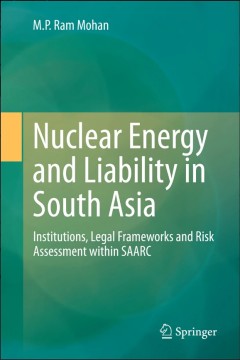
Nuclear Energy and Liability in South Asia:Institutions, Legal Frameworks and…
This book advocates pursuing a regional approach to nuclear risk framework, which it argues is more promising in the current scenario than the non-achievable global regime. In the development of international legislation on liability, the nuclear energy sector represents an alternative approach to a transboundary liability regime. Building on this foundation and following the Chernobyl accident…
- Edition
- 1
- ISBN/ISSN
- 978-81-322-2342-9
- Collation
- Number of Pages XIX, 142
- Series Title
- -
- Call Number
- -
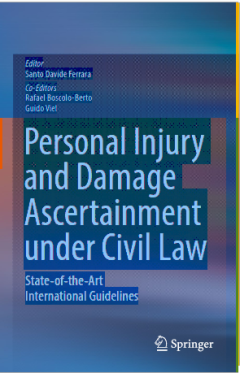
Personal Injury and Damage Ascertainment under Civil Law; State-of-the-Art In…
Setiap pengulangan konflik budaya kuno antara masa lalu dan masa kini menyiratkan kronosentrisme deiktik yang praktis tidak dapat dihilangkan dan intrinsik, dipahami sebagai absolutisme egosentris pada zamannya, seolah-olah itu adalah satu-satunya di mana nilai-nilai berubah, dan seolah-olah tidak ada yang lain.transformasi zaman terjadi, hidup kurang lebih seperti itu, jika bukan sebagai "muta…
- Edition
- -
- ISBN/ISSN
- 978-3-319-29812-2
- Collation
- -
- Series Title
- -
- Call Number
- 303.6 FER p
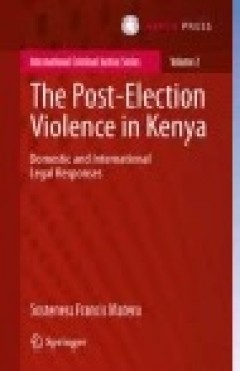
The Post-Election Violence in Kenya
In the spirit of this road map, the author analyzes the post-election violence in Kenya from a legal point of view. He extensively examines legal options for domestic criminal accountability and discusses both retributive (prosecutions) and restorative justice (mainly truth commission) mechanisms, being the main legal responses to the gross violations of human rights. Furthermore, he thoroughly…
- Edition
- -
- ISBN/ISSN
- 978-94-6265-041-1
- Collation
- XVIII, 275
- Series Title
- International Criminal Justice Series
- Call Number
- -
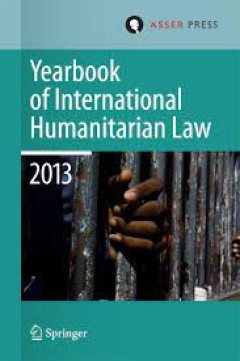
Yearbook of International Humanitarian Law 2013
This volume contains several articles on the topic ‘Detention in non-international armed conflict’, including the Copenhagen Process, and moreover features contributions on autonomous weapons systems, Apartheid and the second Turkel Report. It also contains an elaborate Year in Review and a special section on the high-level Boundaries of the Battlefield symposium, including a conference rep…
- Edition
- -
- ISBN/ISSN
- 978-94-6265-038-1
- Collation
- -
- Series Title
- -
- Call Number
- -
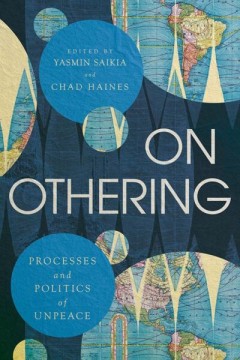
On Othering Processes and Politics of Unpeace
In every sphere of life, division and intolerance have polarized communities and entire nations. The learned construction of the Other—an evil “enemy” against whom both physical and discursive violence is deemed acceptable—has fractured humanity, creating divisions that seemingly defy reconciliation. How do we restore the bonds of connection among human beings? How do we shift from pola…
- Edition
- -
- ISBN/ISSN
- 9781771993876
- Collation
- -
- Series Title
- Global Peace Studies
- Call Number
- 6 x 9, 360 pages
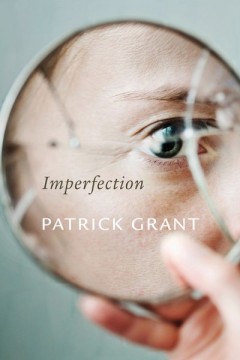
Imperfection
Known for his exploration of the relationship between Buddhism and violent ethnic conflict in modern Sri Lanka, as well as his contribution to the study of Northern Ireland and the complex relationships among religion, literature, and ethnicity, Grant provides the reader with an analysis of the widespread rise of religious extremism across the globe. Referencing Plato, Van Gogh, Jesus, and the …
- Edition
- -
- ISBN/ISSN
- 9781926836751.01
- Collation
- -
- Series Title
- Cultural Dialectics
- Call Number
- 240 pages
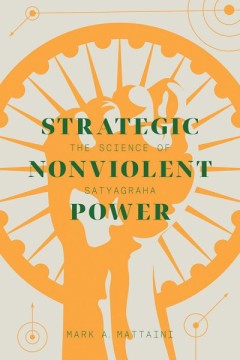
Strategic Nonviolent Power The Science of Satyagraha
Strategic Nonviolent Power proposes that the route to what Gandhi described as the “undreamt of and seemingly impossible discoveries” of nonviolent resistance is the application of rigorous science. Although not a simple science, Mattaini’s application of ecological science grounded in the science of behaviour brings exceptional power to the struggle for justice and liberation. At a time …
- Edition
- -
- ISBN/ISSN
- 9781927356418.01
- Collation
- -
- Series Title
- -
- Call Number
- 328 pages
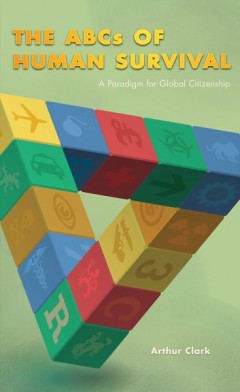
ABCs of Human Survival A Paradigm for Global Citizenship
The ABCs of Human Survival examines the effect of militant nationalism and the lawlessness of powerful states on the well-being of individuals and local communities―and the essential role of global citizenship within that dynamic. Based on the analysis of world events, Dr. Arthur Clark presents militant nationalism as a pathological pattern of thinking that threatens our security, while empha…
- Edition
- -
- ISBN/ISSN
- 9781897425688.01
- Collation
- -
- Series Title
- -
- Call Number
- 280 pages
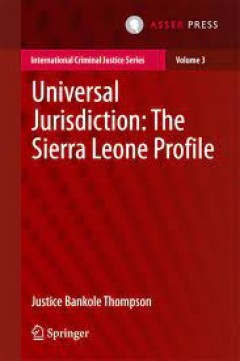
Universal Jurisdiction: The Sierra Leone Profile
The doctrine of universal jurisdiction has evolved throughout modern times in the context of global criminal justice as a paramount agent of combating impunity emanating from international criminality. Sierra Leone, as a member of the international community and the United Nations, has, in recent times, been a pioneer in the progressive application and development of international criminal law …
- Edition
- -
- ISBN/ISSN
- 978-94-6265-054-1
- Collation
- XX, 141
- Series Title
- -
- Call Number
- -
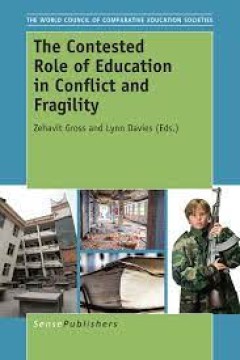
The Contested Role of Education in Conflict and Fragility
"This book brings together new thinking on education’s complex and evolving role in conflict and fragility. The changing nature of conflict, from inter- to intra-state, and with shifting geopolitical power balances, demands a reconceptualization of where education is positioned. Claims that education on its own can be an agent of conflict transformation are disputed. Deliberate attempts at pe…
- Edition
- 1
- ISBN/ISSN
- 978-94-6300-010-9
- Collation
- -
- Series Title
- VIII, 266
- Call Number
- VIII, 266
 Computer Science, Information & General Works
Computer Science, Information & General Works  Philosophy & Psychology
Philosophy & Psychology  Religion
Religion  Social Sciences
Social Sciences  Language
Language  Pure Science
Pure Science  Applied Sciences
Applied Sciences  Art & Recreation
Art & Recreation  Literature
Literature  History & Geography
History & Geography